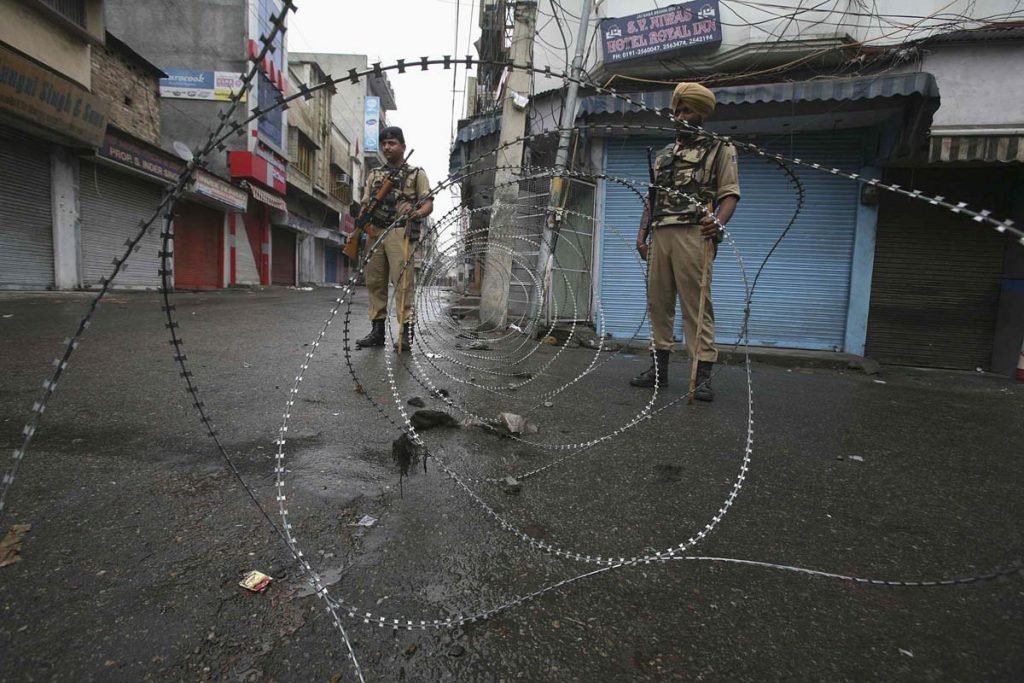Mukesh Gupta/Reuters
By
Muhammad Shoaib Khan
If you want to see heaven on earth, then you should visit the land of beauty, aka Kashmir. This land of beautiful sceneries, with fresh water rivers and lush green trees is situated in the north of Pakistan. It is considered a Paradise, a dream place for living. In ancient times, this land was called “Kashyapamar” (after Kashyapa) that later became Kashmir.
Kashmir is situated in the northern most geographical region of South Asia. Until the mid-19th century, the term “Kashmir” represents only the valley between the Great Himalayas and Pir Panjal mountain range. Today, the boundaries have spread over a larger area that includes the Indian-administered territory of Jammu and Kashmir (subdivided into Jammu, Kashmir, and Ladakh divisions), the Pakistani-administered territories of Azad Kashmir and Gilgit-Baltistan, and Chinese-administered territories of Aksai Chin and the Trans-Karakoram Tract. The dynamics and demographics of this region are very different. It is considered an imperative part of Pakistan, as the founder of Pakistan the Quaid once said; “Kashmir is the jugular vein of Pakistan.”
This resource filled piece of land is occupied by India, the so called biggest democracy of the world. To improve its situation, right of plebiscite should be given to the people of Kashmir. Unfortunately, for the last six decades Kashmir has been under ongoing violence of external forces. But no particular action has been taken by the international community except only condemning this act. Human rights are violated on a daily basis by the violence of Indian troops in Indian occupied Kashmir (IOK).
Pakistan and India have been rivals of one another since the partition of the Sub Continent. India claimed that Kashmir is their integral part, which is still a controversial part. Controversy lies since this subcontinent was considered as British India. There were 500 princely states including Kashmir in British India. Maharaja Hari Singh executed the legal document of Instrument of Accession. At the time of partition, it was at the discretion of Maharaja Hari Singh to decide for Kashmir being part of Pakistan or India. According to a referendum held in British India, it was mutually decided that Muslim majority areas will go with Pakistan whereas Hindu majority areas will go with India and princely states will be considered as separate entity.
The founder of Pakistan Quaid-e-Azam Muhammad Ali Jinnah visited Kashmir at least four times before partition. His first visit in 1926 was considered private, but practically, this visionary leader had used this visit to assess the socio-economic condition of the people of Kashmir, under the cruel rule of Maharaja Hari Singh. Indeed, there was no political awakening in the State, nor could Kashmiris form political parties. Once some renowned Kashmiris dared to submit a memorandum to the Viceroy of India, demanding the reforms in the educational and economic sectors, and to redress the grievances of Kashmiri masses, as a result the Dogra Government victimized and tortured them like anything.
It is universally known that Jammu and Kashmir was forcefully taken by India. According to UN resolutions, right of plebiscite should be given to the people of Kashmir so they decide their future. They should have the option to join Pakistan or India or may announce Kashmir as an Independent state on the world map. Even after almost six decades, Kashmir as an issue is on the same point and remains unresolved. It is because of Indian policies as they do not want to lose Jammu and Kashmir. UN resolutions on Kashmir have not been implemented. It seems as if the UN is failing to implement them and UN obligations are only for weak or third world countries instead of major powers of the world.
Former President of Pakistan Pervez Musharraf claimed that he was very close to resolving this issue but it was once again overruled by India. In 2004, Musharraf proposed that Kashmir should be demilitarized and that internal independence for Kashmiris is important, but India rejected to do so. The current PM of Pakistan, Nawaz Sharif also proposed a peace formula for Kashmir but it seems like India is not in a mood to resolve this issue.
Peace plans were given in the past as well, the most important of them was given by Mr. Nehru in 1948. He suggested that both countries (Pakistan and India) should step back from the war zone and for the issue to be resolved through plebiscite. Both parties agreed to do so under the umbrella of the UN but later on India refused. One of the reasons behind this was that the Indian constitution gave special status to Kashmir whereas Mission 44 (to secure 44 seats in Kashmir assembly out of 87 and make Kashmir its part) is another Indian government plan to make Jammu and Kashmir an official part of India.
Due to this uncertain situation, it seems that the people of Kashmir will fight for their freedom until their last breath. Especially after the martyrdom of Burhan Wani, the freedom movement of Kashmir again started with full devotion and spirituality. For antagonizing this movement, ongoing Indian brutalities are getting worse, violating all the UN resolutions. This time, Indian troops are using ballot guns against Kashmiris getting them handicapped.
The world should acknowledge the freedom movement of Kashmir and force India to end brutal killings in the region. The right of plebiscite should be given to them so they can have a better future, because it is the right of every human being to live in a better way.



No Comments Yet!
You can be first to comment this post!